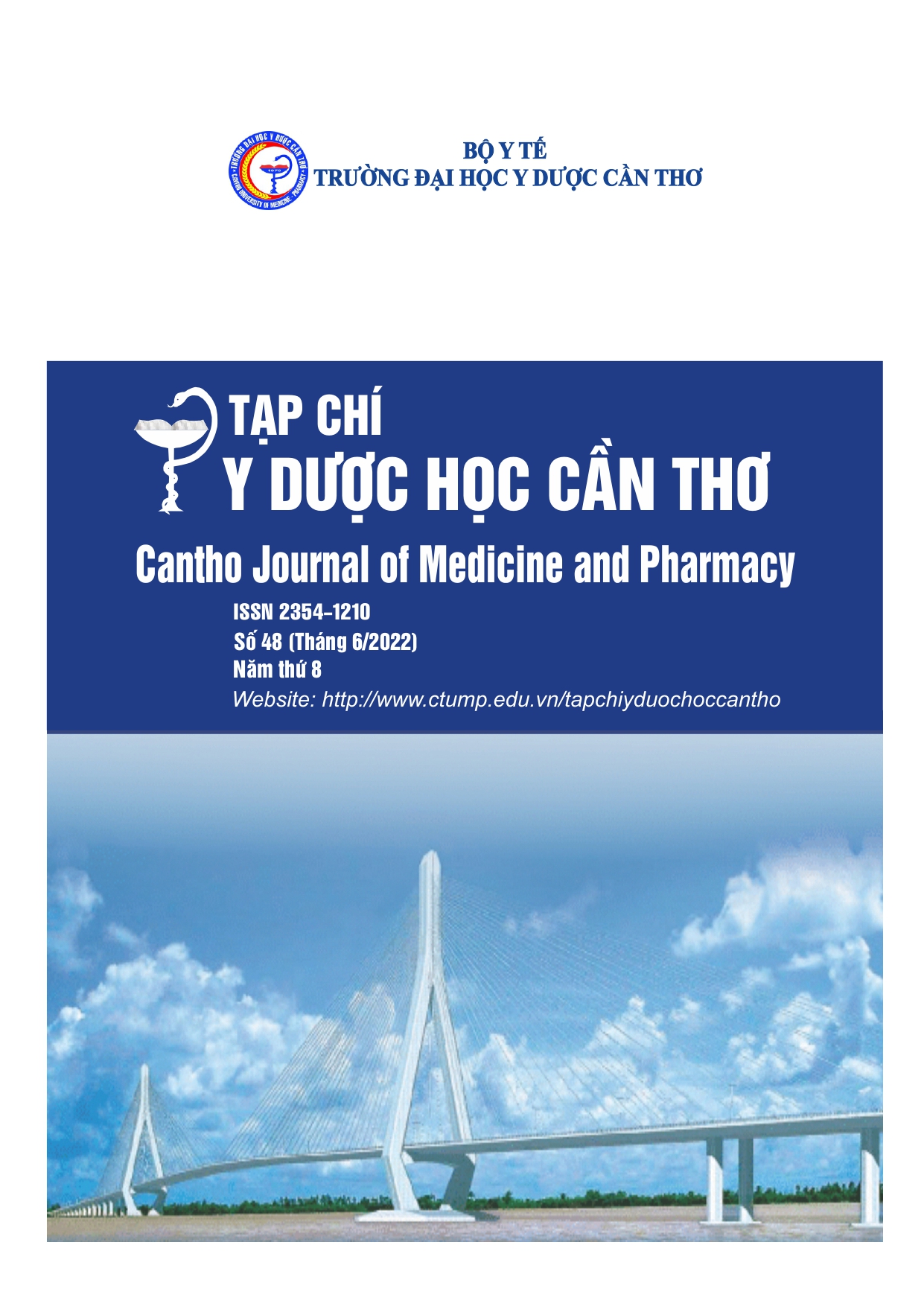SURVEYING OF NEED FOR SUPPORT OF CAREGIVERS FOR STROKE PATIENTS AT DIFFERENT TIMES
Main Article Content
Abstract
Background: Family caregivers play an important role in caring for people with stroke. They face difficulties such as lack of medical support to care for patients while in hospital and after returning home. Therefore, they have certain needs that need support to better care for patients at different times. Objectives: Survey of caregivers' need for support for stroke patients at three time points: at admission, before discharge and 1 month after discharge. Materials and method: Primary caregivers for stroke patients at the Department of Neurology of Tra Vinh General Hospital, interviewed using a questionnaire. Results: There were 80 caregivers surveyed. The caregiver's need for support changed over 3 time points, the highest average rate at the time of hospital discharge. The needs with a high percentage are the need for the patient to be respected in the process of treatment and care (97.5%), knowing how to prevent recurrence (97.5%). Conclusion: Caregivers for stroke patients have needs to be supported at different times, medical staff need to pay attention to these needs to support and contribute to improving the quality of care and treatment stroke patient.
Article Details
Keywords
Stroke, need, caregiver
References
2. Lê Thị Hương, Dương Thị Phương (2016), “Tỷ lệ mắc đột quỵ tại 8 tỉnh thuộc 8 vùng sinh thái Việt Nam năm 2013-2014 và một số yếu tố liên quan”, Tạp chí Y học TP. Hồ Chí Minh, 104 (6), tr.1-8.
3. Nguyễn Thị Thanh Tình, Lê Văn Tuấn, Norwood Susan (2014), “Kiến thức và thái độ của người bệnh trong phòng ng ừa tai biến mạch máu não tái phát”, Tạp chí Y học TP. Hồ Chí Minh, 18 (2), tr. 71-75.
4. Bakas T., Jessup N. M., McLennon S. M., et al. (2016), “Tracking patterns of needs during a telephone follow-up programme for family caregivers of persons with stroke”, Disabil Rehabil, 38(18), tr.1780-90.
5. Han Y., Liu Y., Zhang X., et al. (2017), “Chinese family caregivers of stroke survivors: Determinants of caregiving burden within the first six months”, J Clin Nurs, 26(23-24), pp.4558-4566.
6. Hayashi Y., Hai H. H., Tai N. A. (2013), “Assessment of the needs of caregivers of stroke patients at state-owned acute-care hospitals in southern Vietnam, 2011”, Prev Chronic Dis, 10, pp.E139.
7. King R. B., Hartke R. J., Lee J., et al. (2013), “The stroke caregiver unmet resource needs scale: development and psychometric testing”, J Neurosci Nurs, 45(6), pp.320-8.
8. Lou S., Carstensen K., Jorgensen C. R., et al. (2017), “Stroke patients' and informal carers' experiences with life after stroke: an overview of qualitative systematic reviews”, Disabil Rehabil, 39(3), pp.301-313.
9. Rohde D., Gaynor E., Large M., et al. (2019), “Stroke survivor cognitive decline and psychological wellbeing of family caregivers five years post-stroke: a cross-sectional analysis”, Top Stroke Rehabil, 26(3), pp.180-186.
10. Tsai P. C., Yip P. K., Tai J. J., et al. (2015), “Needs of family caregivers of stroke patients: a longitudinal study of caregivers' perspectives”, Patient Prefer Adherence, 9, pp.449-57.
11. Yan L. L., Li C., Chen J., et al. (2017), “Stroke”, Cardiovascular, Respiratory, and Related Disorders, rd, et al., Editors, The International Bank for Reconstruction and Development /The World Bank (c) 2017 International Bank for Reconstruction and Development/The World Bank., Washington (DC).
12. Ezema C. I., Akusoba P. C., Nweke M. C., et al. (2019), “Influence of Post-Stroke Depression on Functional Independence in Activities of Daily Living”, Ethiop J Health Sci, 29(1), pp.841-846


